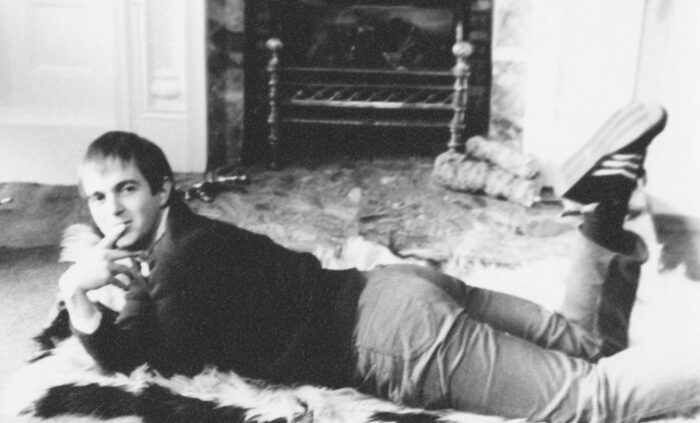As the flags are flying for Pride month this June, news reports remind us why it’s still necessary to stand up and fight for equality even in 2019. There is safety in numbers and relief through knowing we are not alone in facing micro-aggressions and physical threats. While we now have the protection of the law, this is thanks to LGBT heroes whose individual stands against injustice came at great personal cost.
One such hero is Mark Bunyan who I met while we were both volunteering in the criminal justice system. Despite the fusty courtroom atmosphere Mark was out, queer and impossible to ignore. I was naturally drawn to him.
In real time, I followed Mark’s unusual quest to become the over-60s UK gymnastics champion and I thought it could make an interesting documentary. Angie and I had made one film together and were keen to make another, and Marks’ gymnastics offered a perfect subject. We quickly discovered that Mark was also a professional cabaret artist with a colourful history. He performed his own original, risqué material that spoke directly to gay audiences and had enjoyed a bill-topping career until the UK AIDS crisis began in 1981. The disease itself, fear and ignorance swept away the slow advances in LGBT rights of previous decades. Gay cabaret waned as people keen to earn a living in the arts turned to safer, mainstream, projects.
The AIDS crisis was all-pervading; gay men faced rampant prejudice in society, largely unprotected by the law and lesbians famously rallied to support them at their own considerable risk. Terence Higgins died in 1982 and in 1985 the Health Minister Kenneth Clark enacted powers to detain people with AIDS in hospital against their will. A few years later Prime Minister Margaret Thatcher launched the ‘traditional moral values’ campaign, introducing the infamous Section 28 preventing the promotion of homosexuality or publishing material with the intention of promoting homosexuality or that could “promote the teaching in any maintained school of the acceptability of homosexuality as a pretended family relationship”. I had just come out at the same time as Section 28, was working in the education system and had a child in the education system and I know first-hand how oppressive this period was.
With his cabaret career on enforced pause, Mark devoted his energies and talents to help build important networks within the LGBT community. He co-founded the hugely successful Pink Singers – the first gay choir in Europe- with journalist Brian Kennedy, and was a volunteer on Gay Icebreakers phone helpline, the forerunner of LGBT Switchboard and whose members also founded Gays The Word bookshop. These vital resources came under constant threat and some of Mark’s songs form a record of those times as he experienced them.
We knew that the story of Mark’s life as an artist-activist was inspirational and important to tell.
Our research introduced us to new LGBT heroes and shone lights on this dark period in history. With easily enough material for a feature-length film but the budget for only a short, the storyline changed several times with Mark’s trampolining success (by this time he had won double gold medals) featuring less and less in successive edits.
We made a beautiful and fun short celebrating a man who stood up for himself and others like him. Mark Bunyan: Very Nearly Almost Famous screened at San Francisco’s Frameline LGBTIQA+ film festival, where Mark became an instant celebrity. In total the film has screened at 15 festivals around the world, winning the Audience Award at Rainbow Film Festival.
Mark shows no sign of slowing down, this week taking his place as a finalist in Pride’s Got Talent 2019, performing his cult classic Fruit Song amongst others. Mark is also making final preparations for a 25-day run at Edinburgh Fringe Festival and putting the finishing touches to Being Colonel Barker, a stage musical depicting the adventures of the first recorded transman in the UK.
Watch Mark Bunyan: Very Nearly Almost Famous (14 mins) on the QueerBee player here
